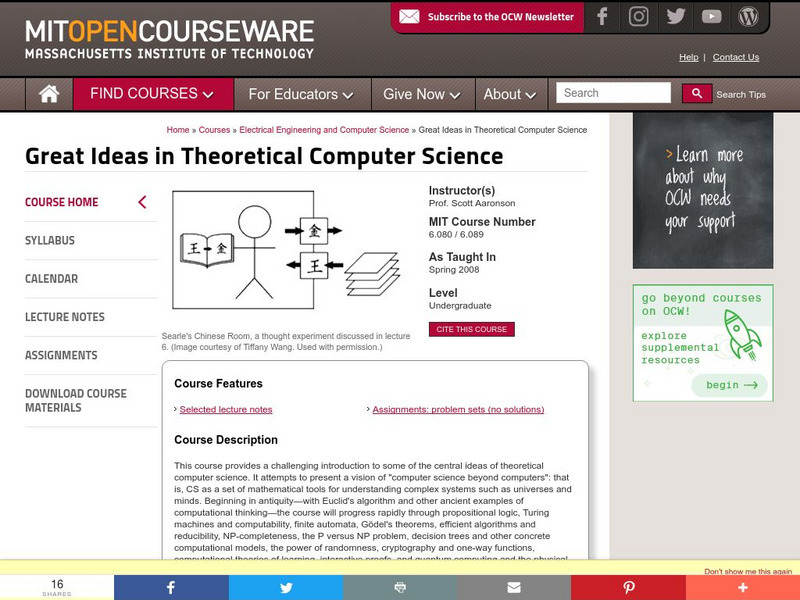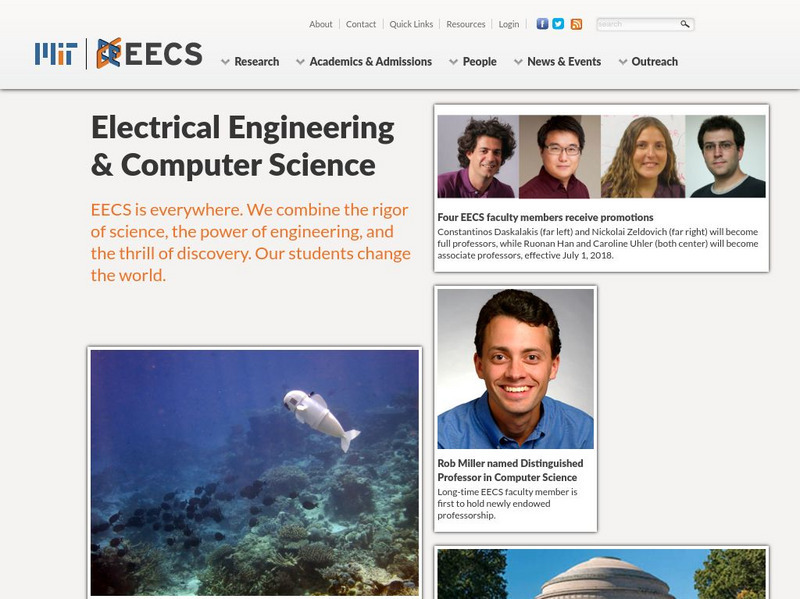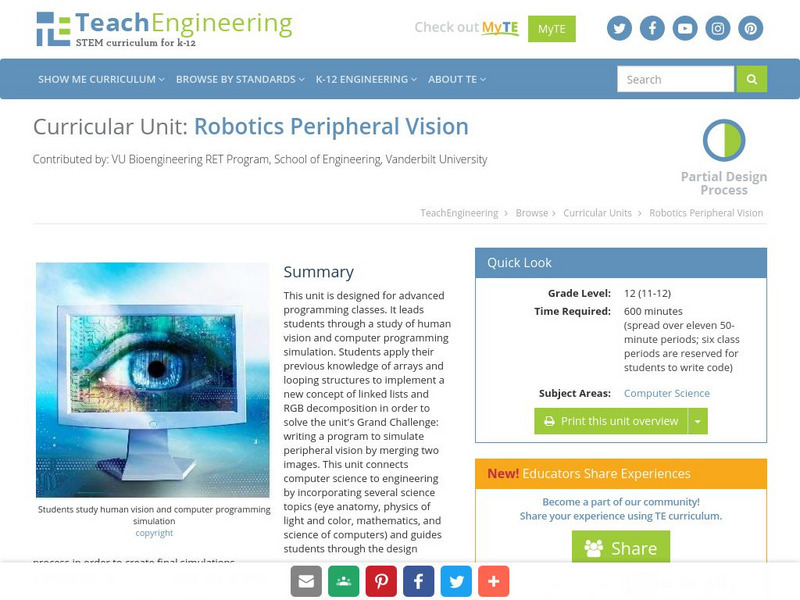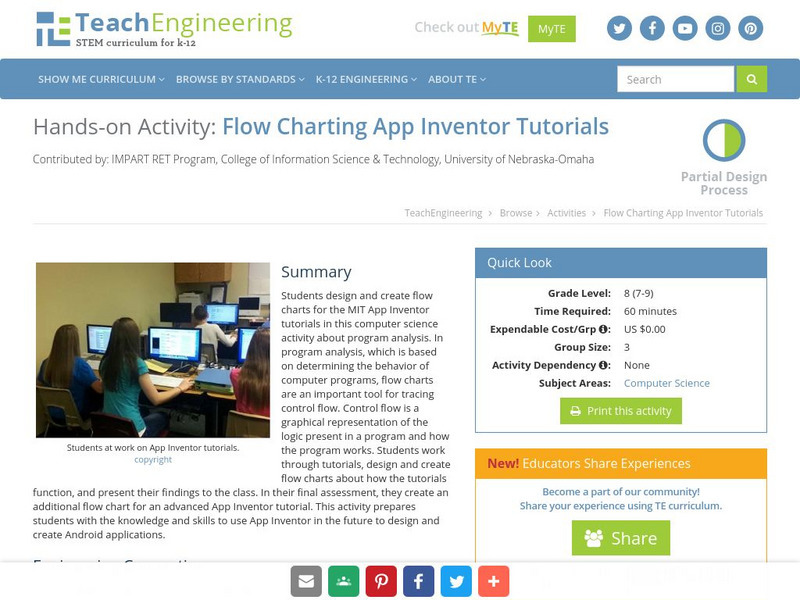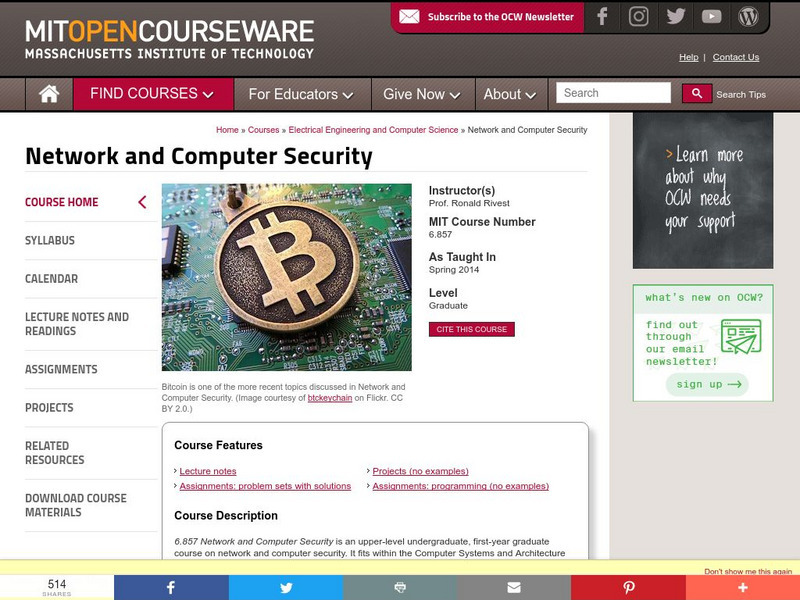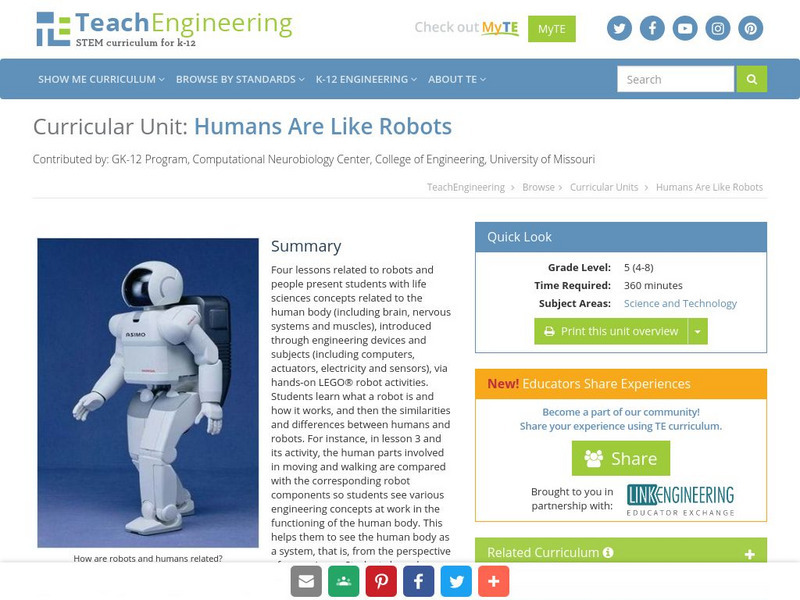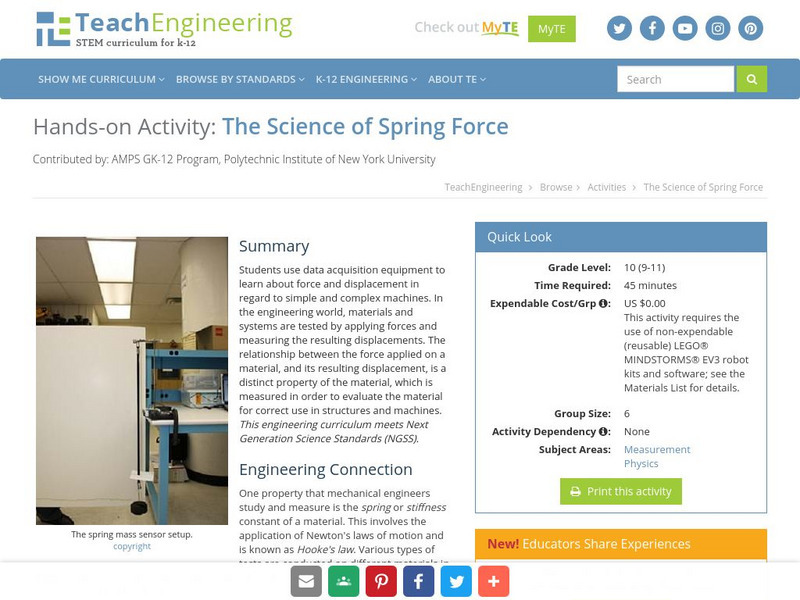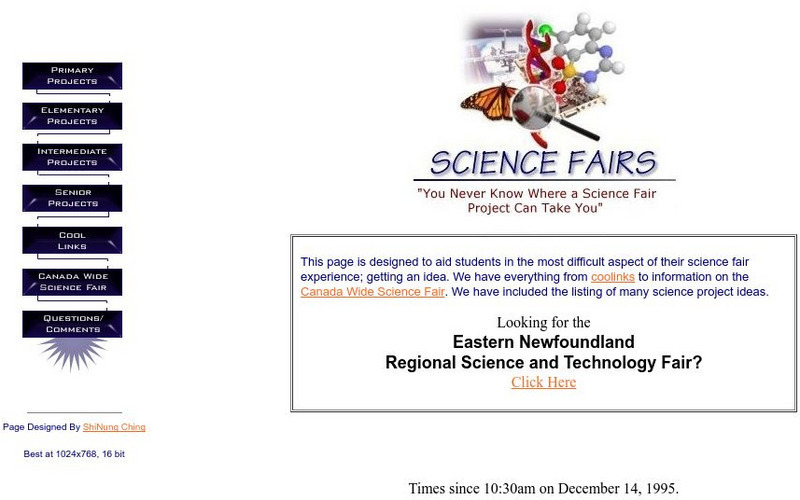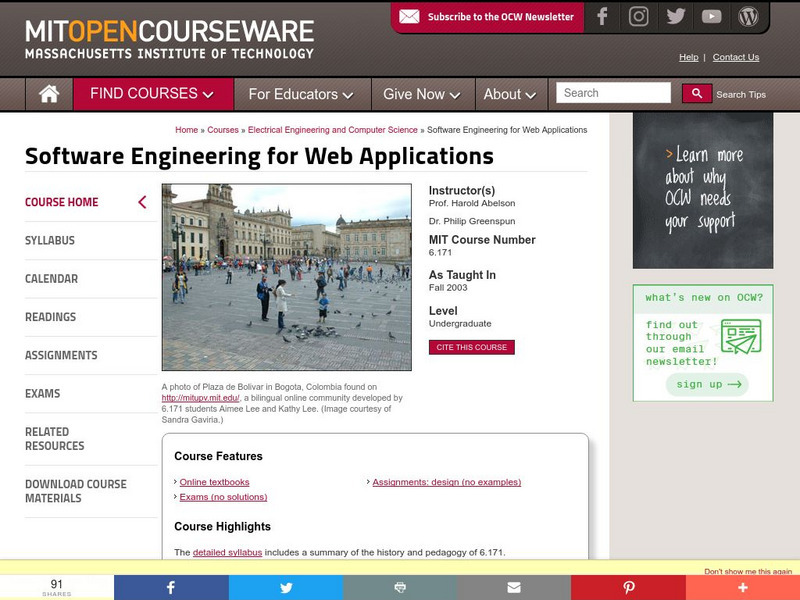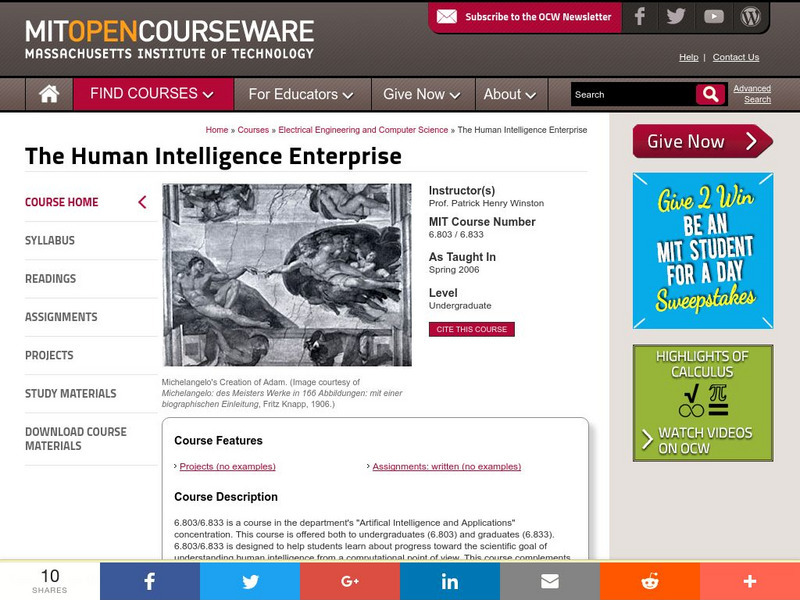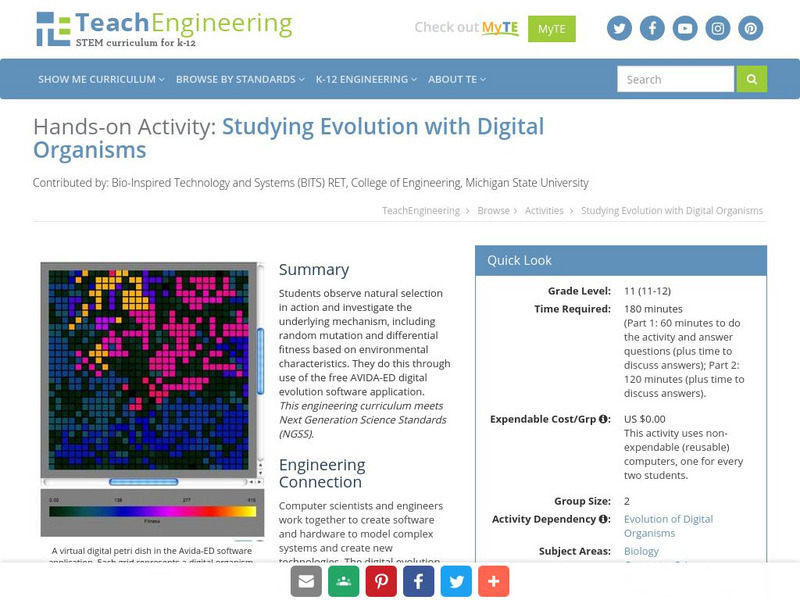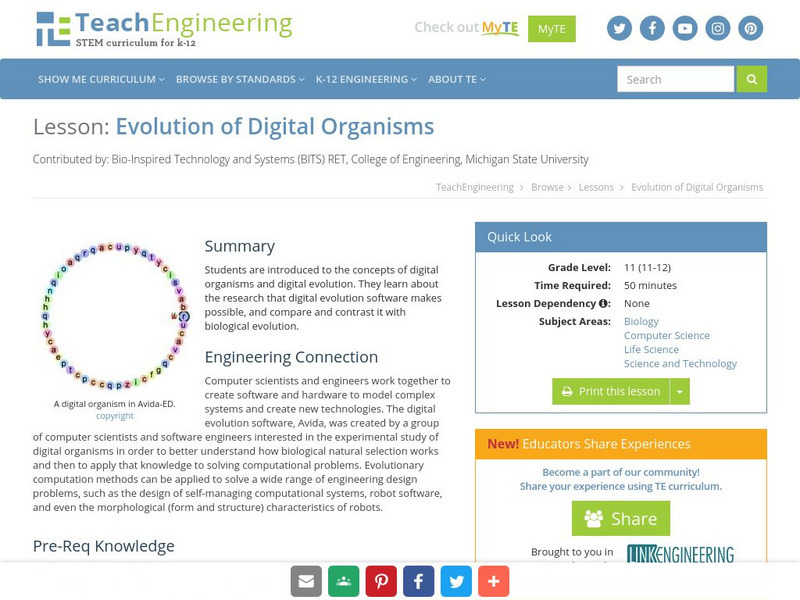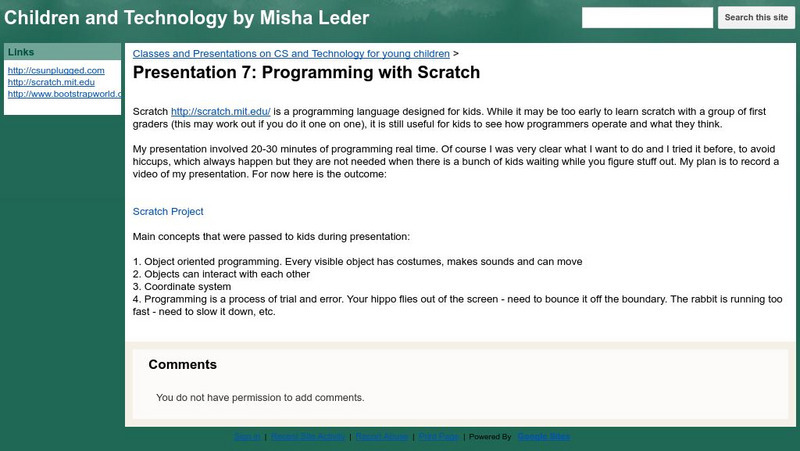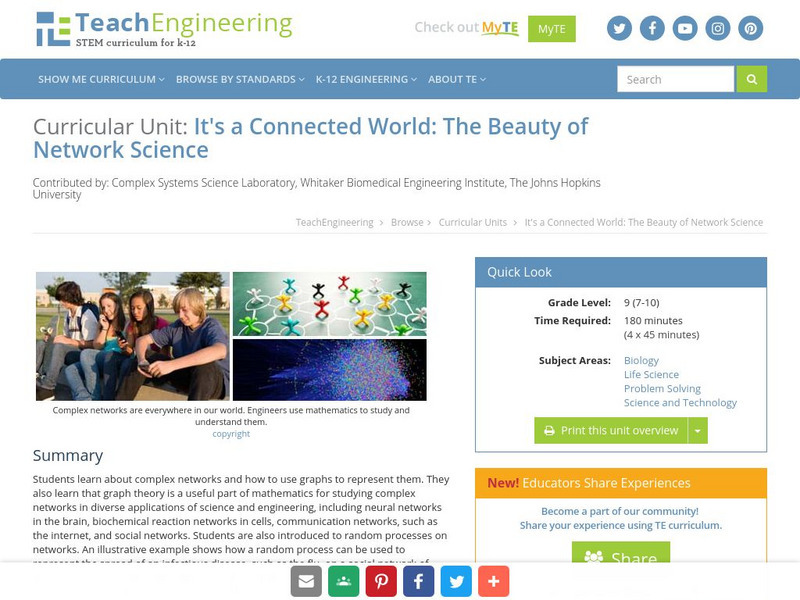Massachusetts Institute of Technology
Mit: Open Course Ware: Great Ideas in Theoretical Computer Science
A complete course on theoretical Computer Science presented at the college undergraduate level. The course attempts to describe Computer Science beyond the computer, focusing on mathematical tools, complex systems and classic problems,...
TeachEngineering
Teach Engineering: Hurricane! Saving Lives With Reasoning & Computer Science
Students develop and apply the distance formula and an x-y coordinate plane on a hurricane tracking map, and then use a map scale to determine distance in miles. Then, using MATLAB computer science programming language, students help...
TeachEngineering
Teach Engineering: Program Analysis Using App Inventor
In computer science, program analysis is used to determine the behavior of computer programs. Flow charts are an important tool for understanding how programs work by tracing control flow. Control flow is a graphical representation of...
Massachusetts Institute of Technology
Mit: Department of Electrical Engineering and Computer Science
This is the website for the Massachusetts Institute of Technology's Department of Electrical Engineering. The site has links to research, academics, etc.
TeachEngineering
Teach Engineering: Curiosity Killed the App
Young scholars gain experience with the software/system design process, closely related to the engineering design process, to solve a problem. First, they learn about the Mars Curiosity rover and its mission, including the difficulties...
Other
Science Fairs Homepage: Senior Projects
This resource from the Eastern Newfoundland Science Fairs Council provides really substantial projects for senior High School students. These are online topics, six areas, with about 10-20 topics per area.
TeachEngineering
Teach Engineering: Robotics Peripheral Vision
This unit is designed for advanced programming classes. It leads students through a study of human vision and computer programming simulation. Students apply their previous knowledge of arrays and looping structures to implement a new...
TeachEngineering
Teach Engineering: Hidden in Plain Sight
Steganography is the science and art of hiding messages in plain sight so only the sender and intended recipient know the existence of a message. Steganography can be characterized as security through obscurity. Through this lesson,...
TeachEngineering
Teach Engineering: Flow Charting App Inventor Tutorials
Students design and create flow charts for the MIT App Inventor tutorials in this computer science activity about program analysis. In program analysis, which is based on determining the behavior of computer programs, flow charts are an...
Massachusetts Institute of Technology
Mit: Open Course Ware: Introduction to Software Engineering in Java
This MIT course is an introduction to Java programming and software engineering. The focus is on developing high quality software that solves real problems.
Massachusetts Institute of Technology
Mit: Open Course Ware: Network and Computer Security
This MIT course on network and computer security covers topics such as security in multi-user distributed systems, cryptography, authentication, intrusion detection, and many other security topics.
Massachusetts Institute of Technology
Mit: Open Course Ware: Courses: Electrical Engineering: Circuits and Electronics
College-level electrical engineering course highlighting circuits and electronics. This course introduces the fundamentals of the lumped circuit abstraction. Course features include video lectures, suggested readings, labs, lecture...
TeachEngineering
Teach Engineering: Graphing the Spread of Disease
Students simulate disease transmission by collecting data based on their proximity to other students. One option for measuring proximity is by having Bluetooth devices "discover" each other. After data is collected, students apply graph...
TeachEngineering
Teach Engineering: Our Bodies Have Computers and Sensors
Students learn about the human body's system components, specifically its sensory systems, nervous system and brain, while comparing them to robot system components, such as sensors and computers. The unit's life sciences-to-engineering...
TeachEngineering
Teach Engineering: Humans Are Like Robots
Four lessons related to robots and people present students with life sciences concepts related to the human body (including brain, nervous systems and muscles), introduced through engineering devices and subjects (including computers,...
TeachEngineering
Teach Engineering: The Science of Spring Force
Students use data acquisition equipment to learn about force and displacement in regard to simple and complex machines. In the engineering world, materials and systems are tested by applying forces and measuring the resulting...
Other
Cdli: Science Fairs Homepage
At this site from the Center for Distance Learning and Innovation there's a monstrous listing of possible science fair projects. You can choose from primary (grades 1-4), elementary (grades 4-6), intermediate (grades 7-9), or senior...
Massachusetts Institute of Technology
Mit: Open Course Ware: Software Engineering for Web Applications
This course gives students some experience in dealing with the challenges that are unique to web applications, such as concurrency and security risks.
Massachusetts Institute of Technology
Mit: Open Course Ware: The Human Intelligence Enterprise
This course is part of the artificial intelligence studies at MIT. The course is designed to help students learn about the scientific goal of understanding human intelligence from a computational point of view.
TeachEngineering
Teach Engineering: Studying Evolution With Digital Organisms
Students observe natural selection in action and investigate the underlying mechanism, including random mutation and differential fitness based on environmental characteristics. They do this through use of the free AVIDA-ED digital...
TeachEngineering
Teach Engineering: Evolution of Digital Organisms
Students are introduced to the concepts of digital organisms and digital evolution. They learn about the research that digital evolution software makes possible, and compare and contrast it with biological evolution.
Curated OER
Google for Education: Children and Technology: Programming in Scratch
Students experience what is it like to be computer programmers through the children's computer coding game, Scratch, developed by MIT engineers.
Other
Cpsr Newsletter: Digital Life Style for Women
An extensive general discussion of all the changes that have occurred within the culture of women in the workplace and the home and the increasing number of women academics and users of the internet.
TeachEngineering
Teach Engineering: It's a Connected World: The Beauty of Network Science
Students learn about complex networks and how to use graphs to represent them. They also learn that graph theory is a useful part of mathematics for studying complex networks in diverse applications of science and engineering, including...
